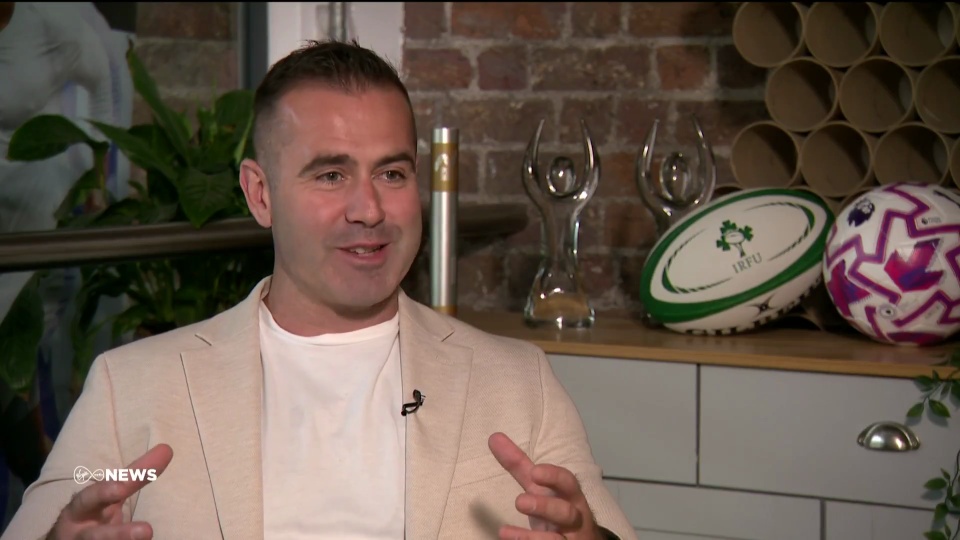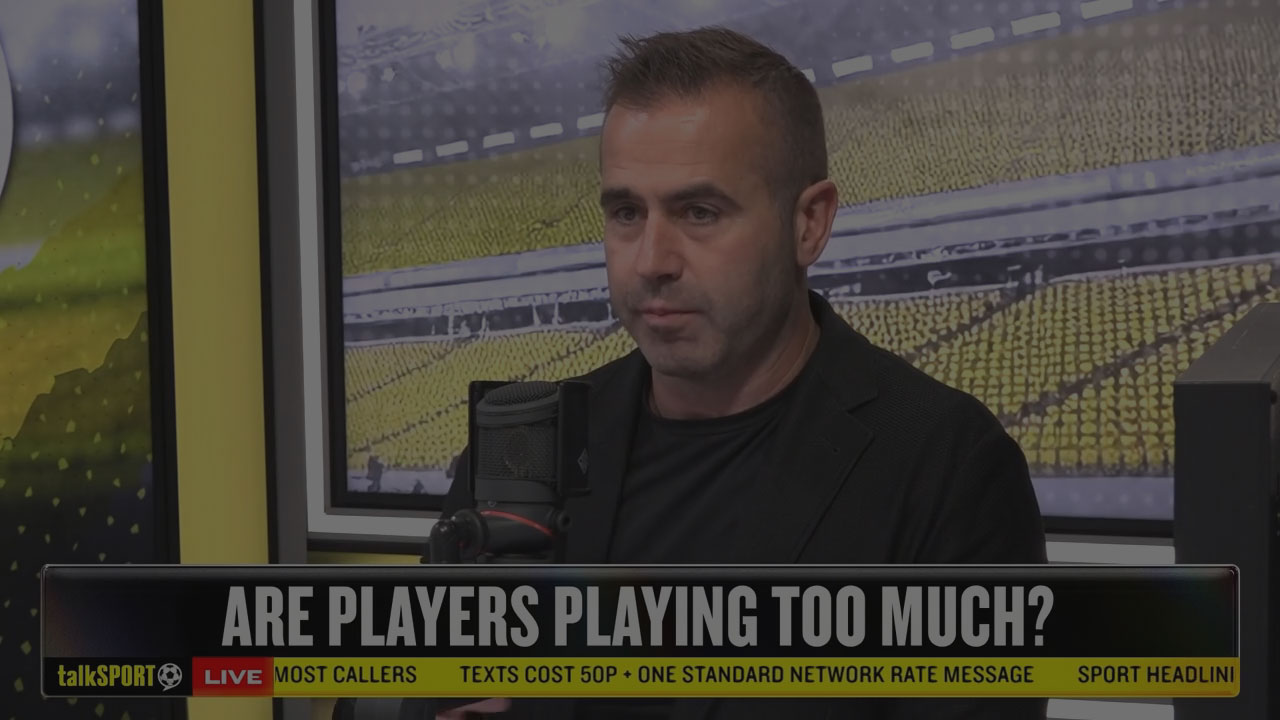Ger Gilroy:
Alright. I’m delighted to say Stephen Smith of Kitman Labs is back with us. I don’t know when the last time you were here was, it could be half a decade, maybe even a decade.
Stephen Smith:
It was five years ago.
Ger Gilroy:
Yeah. Well, things have changed since then. Business is booming, it’s fair to say.
Your company started after your time on staff at Leinster, where you saw a better way to treat injuries and get players fit and ready to go. From there, you built what has become one of the most interesting data companies at the forefront of performance, to the point where you’re now working with the NFL, the Premier League, and other major leagues. That’s the elevator pitch, though I’ve missed a lot of detail.
Stephen Smith:
I think you’ve done a great summary. Hearing you say that actually gives me goosebumps. I sometimes forget how far we’ve come and how much we’ve grown. It’s been an incredible journey, and a lot of fun.
Ger Gilroy:
So, you have an Irish office and an American office at least. Are there others?
Stephen Smith:
Yes, we have a UK setup too. Since COVID we’ve also built a remote presence in South America, Japan, Australia, Spain, and other parts of Southern Europe.
Ger Gilroy:
So what do you do?
Stephen Smith:
We provide a technology and
data analytics platform for high-performance organizations. It supports use cases from talent identification to talent development, performance optimization, and health optimization. In short: How do you find the best players? How do you build them? How do you keep them healthy and performing at their best?
Ger Gilroy:
Is it fair to say it started out more on the health side, given your background?
Stephen Smith:
Yes. It started with a thirst for data and insights to objectively make better day-to-day decisions on managing athletes. Coming from
sports medicine and strength and conditioning, I was frustrated by the lack of clarity around which treatments worked best, what exercises to prioritize, how to
manage training loads , and how to measure recovery.
As we dug deeper, we realized you need everything in one view: game demands, training load, physical capacity, injury history, recovery, coaching input, and performance data. It quickly became a 360-degree view of the athlete, combining coaching, fitness, development, and medical information. That’s when it grew into something much bigger.
Ger Gilroy:
And the coaching aspect is hugely important. If you can compare what coaches say a player can do with actual match performance, you eliminate the old cliché of “train like Tarzan, play like Jane.”
Stephen Smith:
Exactly. At the end of the day, it’s not about who’s the fittest, it’s about who can perform the best. Who executes tactics and strategy at the highest level? Coaching and game strategy are the ultimate goals. Everything else, fitness, health, recovery, should ladder into that.
Ger Gilroy:
The last time we spoke, I wondered if Kitman might become a consumer-facing brand. But you’ve gone the opposite route, partnering with the NFL, the Premier League, and other top leagues. How do those partnerships work?
Stephen Smith:
Traditionally, leagues saw themselves purely as rights holders. But organizations like the Premier League, NFL, NBA, and MLS have realized that the heartbeat of their business model is talent. If competition isn’t exciting, the entire economic model, ticket sales, merchandise, broadcast rights, falls apart.
The Premier League, in particular, has invested more in
talent development than any other league. That’s why they’ve grown into the biggest football league in the world. They even generate more international revenue than domestic, which is unheard of.
Ger Gilroy:
I’d have thought clubs would be reluctant to share data with the league. Isn’t that their intellectual property?
Stephen Smith:
The Premier League changed its governance more than ten years ago with the Elite Player Performance Plan (EPPP). It set mandatory standards for tactical, technical, physical, medical, and performance data. Compliance is tied to revenue distribution from broadcast rights.
Some clubs were cautious at first, but the rising tide lifted all boats. The result has been billions in transfer revenue, improved competition, and a stronger business model overall.
Ger Gilroy:
So what role does Kitman play?
Stephen Smith:
We provide the technology to implement those standards, collect the data, and keep teams compliant. It’s used across all 92 academies in the Premier League and EFL. Clubs retain their own data, but can benchmark against aggregated league-wide metrics.
Ger Gilroy:
And you’ve expanded that model to MLS as well?
Stephen Smith:
Yes. MLS has built a complete ecosystem, MLS Next Pro, MLS Next, and now MLS Next 2, covering the entire
player pathway from youth to pro. In a market of 330 million people, it’s hugely powerful, and their media rights have grown by over 1,000% in recent years.
Ger Gilroy:
Bringing it closer to home, Irish football. Could the Premier League model work here?
Stephen Smith:
Absolutely. Ireland lacks a structured
talent development system. League of Ireland staff have been calling for investment in professional coaches, medics, sports scientists, facilities, and technology for years. It shouldn’t be seen as a handout, it’s an investment with a proven return, as the Premier League has shown.
The result would be a stronger league, a better national team, and a viable economic model. Transfer fees alone could help sustain the system, but only if we build the right structures.
Ger Gilroy:
And the tools exist to track the return on that investment?
Stephen Smith:
Yes. The Premier League just published a report showing billions in return from their talent investment. Ireland doesn’t need billions, just modest investment to start building the right foundation.
Ger Gilroy:
You started in rugby. Has it embraced this revolution as quickly as other sports?
Stephen Smith:
Every sport has strengths depending on its business needs. The NFL leads in player health and safety, making 30+ rule changes based on evidence. The Premier League leads in talent development. Rugby has incredible potential, but hasn’t scaled internationally in the same way.
I’d love to see it grow more, especially in the U.S. Fans there are blown away by rugby when they first see it, continuous play, no pads, high skill and strategy. It has the makings of a sport that could really resonate if told the right way.
Ger Gilroy:
So what’s next for Kitman Labs?
Stephen Smith:
We’ve invested heavily in medical, talent development, and league operations solutions. The focus now is scaling those globally, bringing them to more leagues, federations, and clubs to help grow their games and unlock new levels of performance. That’s what excites us.
Ger Gilroy:
And at the club level, what exactly are you measuring?
Stephen Smith:
Everything from physical outputs, match performance, recovery, injuries, and illnesses, to pre-signing medicals, scouting reports, and player screenings. But the real value isn’t just collecting it, it’s connecting the dots, building insights, and turning data into intelligence.
Ger Gilroy:
And coaches? Are they more open to this now?
Stephen Smith:
Absolutely. Coaches have great instincts, they often see the truth, even if they can’t quantify it. Our role is to translate data into their language, to show how it supports what they’re trying to achieve on the pitch. That’s when it becomes powerful.
Ger Gilroy:
How many staff do you have now?
Stephen Smith:
About 150.
Ger Gilroy:
That’s impressive. Congratulations, and continued success. It’s great to hear an Irish company is leading in this space.
Stephen Smith:
Thank you. I really enjoyed this.



